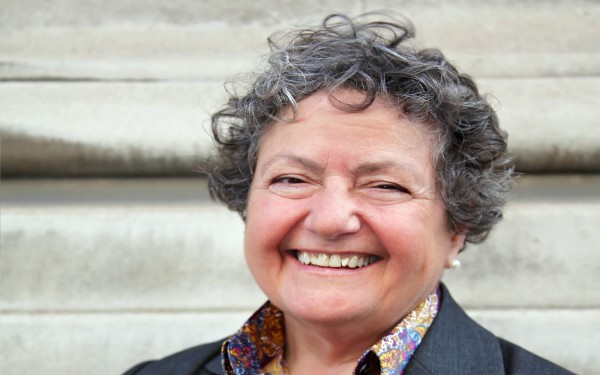
Adults’ services in England will need more social workers over the next two years to implement the government’s social care reforms, the chief social worker has said.
Lyn Romeo told Community Care Live earlier this month that more practitioners would be needed to carry out assessments and support planning, under the reforms, which come into force in October 2023.
In a session on the impact of Covid on the profession, Romeo said the Department of Health and Social Care was looking at making use of some of the £500m allocated to supporting the social care workforce from 2022-25 to fund measures to train, recruit and social workers in adults’ services.
According to the latest official figures, there were an estimated 23,000 social work jobs in adult social care in 2020-21, 17,500 in local authorities, 3,300 in the NHS and 2,000 in the independent sector. This compares with a headcount of 33,966 social workers employed by councils or children’s trusts as of September 2020.
Social care reform plans
The government’s reforms involve imposing an £86,000 cap on people’s care costs, giving self-funding care home residents the right to have their care arranged by local authorities, having councils pay providers a “fair rate for care” and making the means-tested care charging system more generous.
The latter will involve increasing, from £14,250 to £20,000, the value of assets below which people will not have to contribute from their capital for their care, and raising, from £23,250 to £100,000, the asset value above which people are liable to pay for their care in full.
The impact of the measures will be to bring many more people with unmet eligible needs into the system of assessments, plans and reviews, under the Care Act, including those who:
- Request, as a self-funding care home resident, that their council arranges their care, meaning they will need to have their needs assessed, planned for and reviewed.
- Trigger their local authority’s duty to meet their needs because their resources fall below the financial limit, as a result of the changes to the means-test.
- Want to be considered for the cap on care costs, meaning their local authority will need to account for the costs of their care.
Care Act version of cap
A version of the cap is already legislated for under the Care Act 2014, but its planned implementation was scrapped, in 2017.
It is not clear at this stage whether the government will implement this version or legislate for something different, but if it chooses the former path, this will require a significant increase in assessments and reviews.
Related articles
This is because, to be considered for the Care Act version of the cap, a person would need to be assessed, be deemed to have eligible needs, have the costs of these set out in an “independent personal budget” and have this reviewed each year, with the accumulated sum – minus daily living costs – registered in a “care account”.
The government is likely to set out how it intends to implement the cap in its forthcoming white paper on social care reform.


 Bournemouth, Christchurch and Poole
Bournemouth, Christchurch and Poole  Hampshire County Council
Hampshire County Council  Lincolnshire County Council
Lincolnshire County Council  Norfolk County Council
Norfolk County Council  Northamptonshire Children’s Trust
Northamptonshire Children’s Trust  South Gloucestershire Council
South Gloucestershire Council  Wiltshire Council
Wiltshire Council  Wokingham Borough Council
Wokingham Borough Council  Children and young people with SEND are ‘valued and prioritised’ in Wiltshire, find inspectors
Children and young people with SEND are ‘valued and prioritised’ in Wiltshire, find inspectors  How specialist refugee teams benefit young people and social workers
How specialist refugee teams benefit young people and social workers  Podcast: returning to social work after becoming a first-time parent
Podcast: returning to social work after becoming a first-time parent  Podcast: would you work for an inadequate-rated service?
Podcast: would you work for an inadequate-rated service?  Family help: one local authority’s experience of the model
Family help: one local authority’s experience of the model  Workforce Insights – showcasing a selection of the sector’s top recruiters
Workforce Insights – showcasing a selection of the sector’s top recruiters 

 Facebook
Facebook X
X LinkedIn
LinkedIn Instagram
Instagram
More reforms! When will it ever stop. Reforms usually mean cutting services. I worked in palliative care and, giving a rationale for the need, I was able to arrange 24 hour at home support for people without family support and clearly not coping alone. 5 years later, the CHC lead in our area was sanctioning 4 double up calls per day and possible one or two 15 minute ‘pop in calls’ during the night. Getting more than this took a form to be completed with rarionale, followed by lots of email exchanges and often ended in refusal. I remember her saying ‘ I know he’s dying, but what’s his need?’ Cold.’